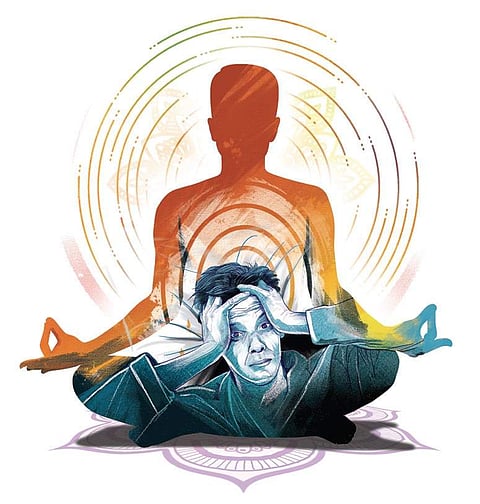

HYDERABAD: The fast-paced nature of life, deteriorating relationships, competition at work, and the pressure to live an Instagram-worthy life — the world we live in today is breeding ground for stress-related illnesses. More often than not resulting in poor quality of sleep and subsequent fatigue, many people in urban areas these days slog through their lives at the cost of their health.
A report titled ‘Great Indian Sleep Scorecard 2019’ released earlier this year, which had surveyed 2,000 respondents in Hyderabad, noted that 79 per cent of them complained of insomnia, 89 per cent reported that they wake up 1-2 times between sleep and 81 per cent said that they feel sleepy at the workplace at least 1-3 days in a week. However, there is a way to tackle this poor lifestyle that often leads to the disruption of your sleep cycle — the ancient fitness technique of yoga.
Sleep disorders can have numerous consequences — from affecting one’s behavioural characteristics like the performance at workplace, to psychiatric problems like depression. In addition to this, disturbed sleep patterns can also cause health problems like obesity, sleep apnea and can even act as risk factors for heart diseases or stroke.
A study conducted by the Patanjali Research Foundation of Haridwar has reported that yoga can help improve the sleep quality and reduce the time taken to fall asleep, increase vigilance, and decrease anxiety. The study titled ‘Effect of yoga on vigilance, self rated sleep and state anxiety in Border Security Force personnel in India’ was published this month in the IOS Press journal.
It involved 112 personnel of the Border Security Force (BSF) who work in the harshest of conditions, and for whom staying vigilant is a vital part of the job. The BSF personnel were administered a yoga programme consisting of yoga asanas, pranayamas and some relaxation techniques for 240 minutes per day, for a period of nine days.
The short nine-day routine of yoga asanas and pranayama for the BSF personnel showed positive results. The improvement shown by the BSF personnel included 31.6 per cent decrease in time taken to fall asleep, around 10 per cent increase in the duration of sleep, 9 per cent increase in vigilance, fewer episodes of daytime sleep, and less wake-ups in the night.
While these results were of a short-duration high-intensity yoga session, there are other studies which have reported improvement in sleep quality and better mental well-being by practising yoga.